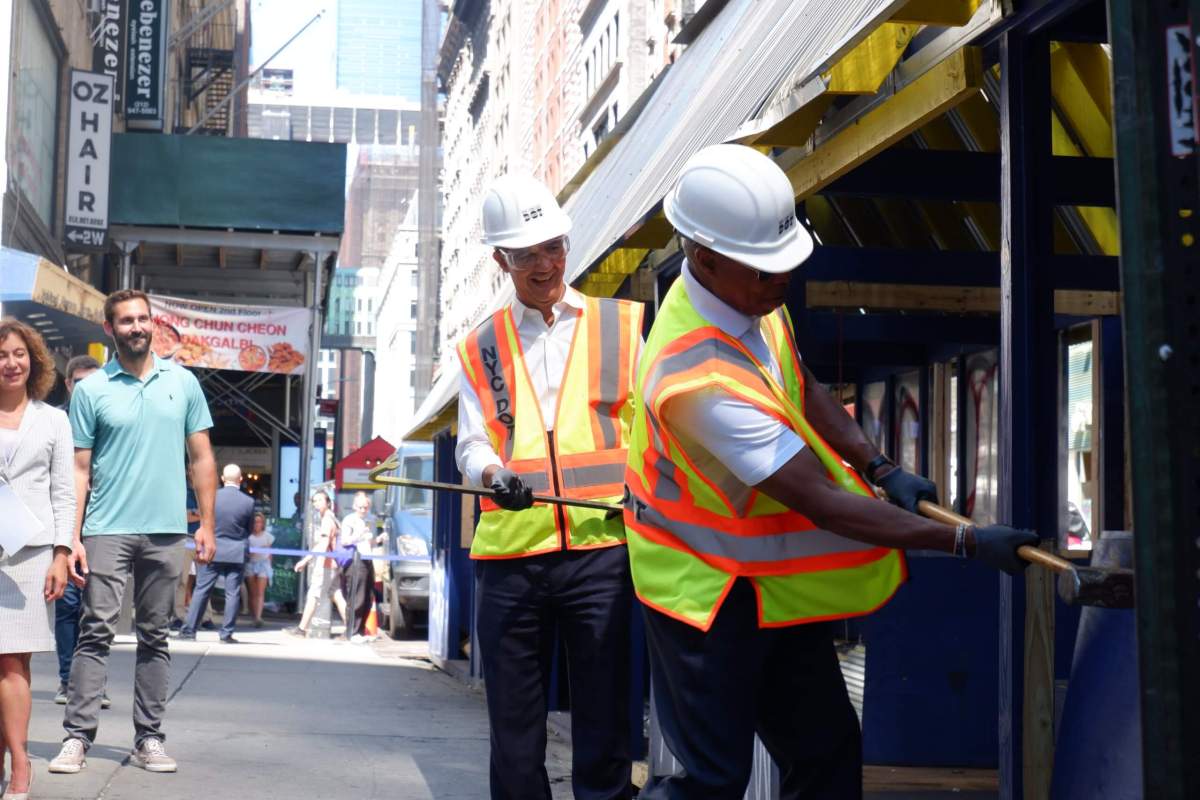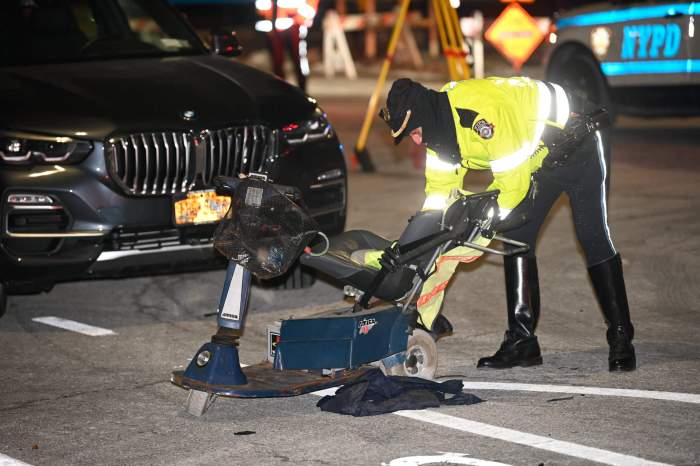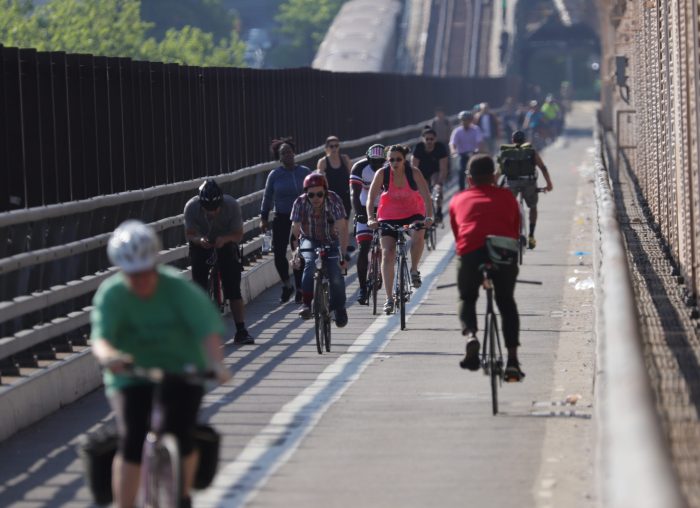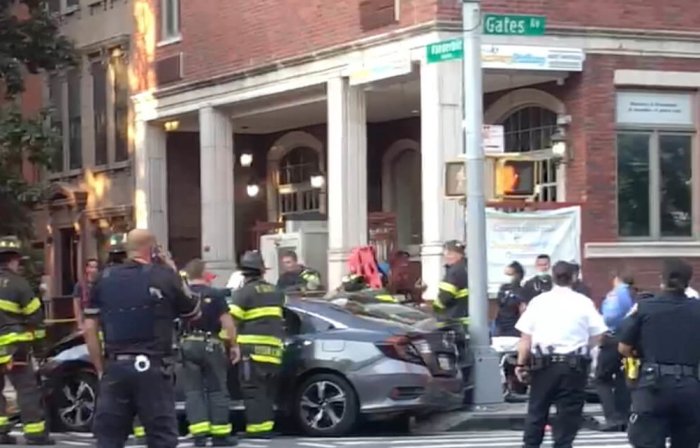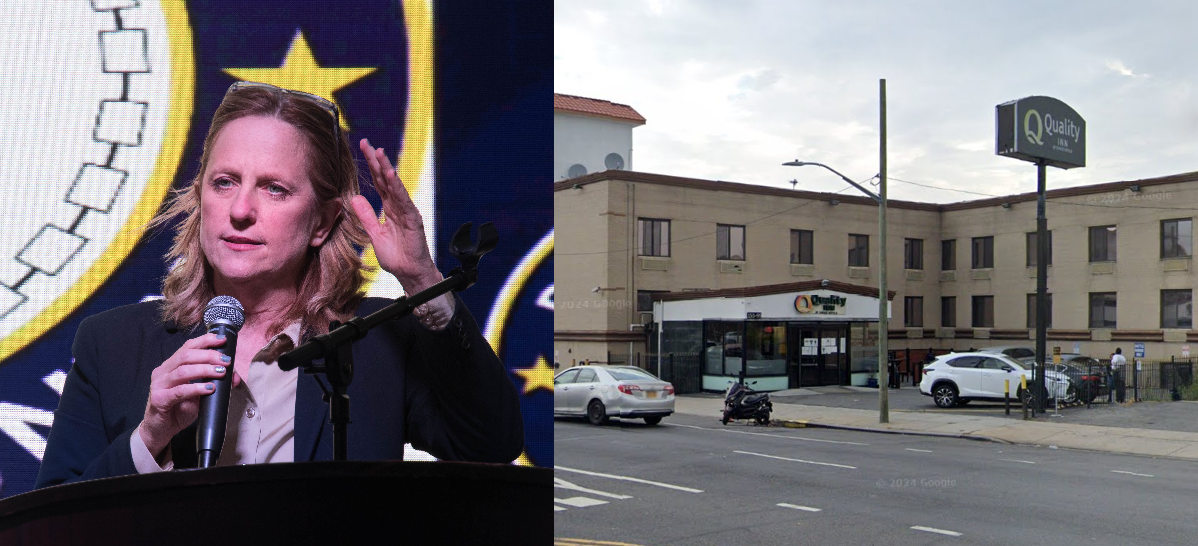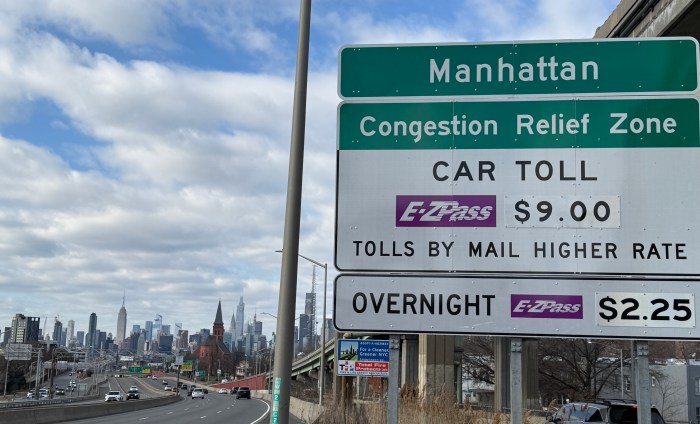Mayor Eric Adams launched a crackdown on abandoned and dilapidated outdoor dining structures, deploying city workers to raze decrepit sheds that he said make up a minority of the city’s mostly popular Open Restaurants scheme.
The shoddy shed blitz already led to the demolition of two dozen curbside wooden setups that were left to deteriorate by owners of now-closed eateries, according to City Hall.
“We want these sheds to be restaurants, not restrooms,” Mayor Adams told reporters at an Aug. 18 press conference in Manhattan.
Adams announced the new initiative Thursday next to an abandoned outdoor dining spot in Koreatown, and hizzoner took a swing at its side with a sledgehammer to mark the occasion.
“When a dining shed is no longer in use and it’s abandoned and it’s a safety hazard, we have to tear it down,” the mayor said. “The blight and disorder that we are witnessing at some of our sites is unacceptable and it will not be how we do business in this city.”
The blue-painted box on W. 32nd Street and 5th Avenue used to be part of Maiden Korea, a “super-streetery” including two sheds and a beer garden in the vacant corner lot next to it, meticulously designed by Brooklyn and Detroit-based architecture firm Dash Marshall.
The outdoor chow spot aimed to help struggling neighborhood businesses, but shuttered in late 2021, according to its Instagram page.
Its owners and the architecture company did not immediately respond for comment.
The Department of Transportation manages the city’s outdoor dining scheme and will target structures where the restaurants are either no longer in operation or if establishments have had repeat and severe violations of the Open Restaurants rules, according to Deputy Mayor for Operations Meera Joshi.
That includes cleanliness issues, such as a vermin infestation, or safety concerns, like blocking Fire Department access.
A task force led by DOT together with the Department of Sanitation, the Parks Department, and the Police Department will review and enforce the takedowns.
The task force will verify whether they’re no longer in use twice before removal.
DOT has currently logged 44 abandoned locations citywide, according to agency spokesperson Vin Barone.
Active structures not complying with the city rules will get inspected three times, and city officials will give their owners two chances to correct the problems.
If not, they will come down as well and the city will give owners 90 days to collect their disassembled sheds before disposing of the pieces.
The city is investigating 37 cases with serious violations — a small share of the nearly 13,000 Open Restaurants participants.
Mayor Adams also called on New Yorkers to report abandoned sheds via 311.
The sweeps come as the mayor and the City Council’s efforts to transition from a COVID-era outdoor dining program to a more permanent version have been stymied by a pair of lawsuits from opponents of the initiative.
Critics of the program have lamented a loss of parking spaces, noise, and some of the sheds being in rough shape and attracting rats. Opponents have also taken issue with some of the sheds becoming makeshift shelters for people experiencing homelessness.
Rodent experts told Streetsblog that the structures were only a small factor for drawing in rats, and that smelly and leaking trash bags dotting the Big Apple’s sidewalks were the main culprit for the furry pests.
The future of Open Restaurants still hangs in the balance amid the court proceedings, but the mayor committed to fighting for the initiative.
“As much as I can have a hand in it, outdoor dining is here to stay, and we want to make sure while it’s here, we get it right,” he said.
A whopping 86% of city residents have said the Open Restaurants program was successful, but more than half (58%) also thought it should be modified, according to an April report by the the Regional Plan Association.
Some locals have reported on Twitter that the dismantled “streateries” in their neighborhoods have reverted to car parking.
DOT is looking for other uses than private vehicle storage where feasible, according to agency spokesperson Barone, and the Department’s chief told reporters that “reimagining” public space remains top of mind for him and the mayor.
“Definitely a priority is to continue reimagining the use of public space,” Ydanis Rodríguez said.
When asked if the mayor would commit to keeping the spaces as public spaces for seating or pedestrians, Adams punted to the Council, but said he was generally in favor of more space for people outside of cars.
“I think that’s the job of the City Council, and our office, we’re open, we love opening the streets to pedestrians,” Adams said.



